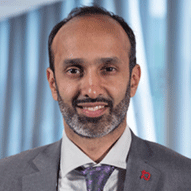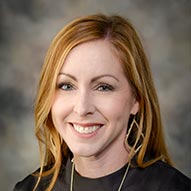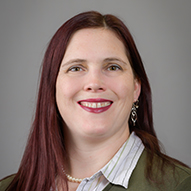Pediatric Thalassemia
Thalassemia is a blood disease where the body doesn’t make enough hemoglobin, a protein that helps carry oxygen through the body. Parents from across Texas bring their kids to Children’s Health for expert thalassemia care. Our patients have access to innovative treatments and a leading blood banking program that gives kids safe access to transfusions. We’re one of only a handful of programs designated as a center of excellence through the Cooley's Anemia Foundation, underscoring our ability to provide leading care for kids with blood disorders.
What is Pediatric Thalassemia?
Thalassemia is a genetic blood disorder where proteins that form hemoglobin don’t work properly. Hemoglobin is an essential part of red blood cells, which transport oxygen through the body. Thalassemia causes the body to not make enough hemoglobin, leading to anemia that causes pallor, fatigue and stunted growth. In it’s most severe forms, thalassemia can cause bone pain, skeletal deformities and a swollen abdomen. Kids with thalassemia may need blood transfusions to give their body healthy hemoglobin to support their growth and development.
What are the different types of Pediatric Thalassemia?
Alpha thalassemia
- Silent carrier, which means you have a genetic mutation for alpha thalassemia, but it doesn't cause symptomatic anemia.
- Alpha thalassemia trait, which can cause mild anemia.
- Hb H disease, which causes mild to moderate anemia and an enlarged spleen (splenomegaly).
- Alpha thalassemia major, the most severe form of alpha thalassemia. If this is diagnosed before your child is born, your baby can have a blood transfusion while still in the womb, which is needed for survival. Kids with this condition will need ongoing blood transfusions and long-term monitoring and care. This condition can be cured with a bone marrow transplant.
Beta thalassemia
- Beta thalassemia trait, which can cause mild to moderate anemia.
- Thalassemia major (Cooley’s anemia), the most severe form of beta thalassemia. Kids with this condition will need ongoing blood transfusions and long-term monitoring and care. This condition can be cured with a bone marrow transplant.
What are the signs and symptoms of Pediatric Thalassemia?
Patients with less severe types of the disorder might not have any symptoms, while patients with the more severe types of thalassemia can have:
- Noticeably pale skin (pallor) or yellowing of their skin and eyes (jaundice)
- A swollen or large abdomen due to enlargement of the spleen and/or liver
- Very prominent face bones
- Stunted growth
- Exercise/activity intolerance
- Heart murmur (abnormal sounds in the heart due to their anemia)
How is Pediatric Thalassemia diagnosed?
Typically, thalassemia is diagnosed by a newborn screening that every child in Texas receives. This screening can detect the most common and severe forms of thalassemia. If your child has a milder form that wasn't detected on their newborn screen, it can be discovered during a routine anemia screening by your primary care provider when your child is 1 to 2 years old. This milder form can be mistaken for iron deficiency anemia.
What causes Pediatric Thalassemia?
Thalassemia, an inherited blood disorder, is caused by mutations in the DNA that produce hemoglobin, the protein in red blood cells that carries oxygen through your body. Although the disorder is not limited to any ethnic background, people who have Greek ancestry or come from the Mediterranean regions are more likely to have beta thalassemia. People who come from Southeast Asia, Africa and the Middle East are more likely to have alpha thalassemia.
How is Pediatric Thalassemia treated?
We offer the latest treatments tailored to your child’s needs. Our team is proud to be involved in the latest clinical trials, creating the next generation of therapies – including gene therapy for children with beta thalassemia. Scientists are pioneering this approach as an alternative to bone marrow transplants.
Blood transfusions
Children who have severe forms of the disease need lifelong blood transfusions and careful monitoring for the complications of blood transfusion. These transfusions give your child healthier hemoglobin, which reduces their symptoms. During this procedure, we transfer healthy blood from a donor into your child’s veins. A blood transfusion lasts between three and four hours.
Surgery
Some children with thalassemia may have an enlarged spleen. Removing the spleen (a surgery called splenectomy) can improve their anemia, but often does not replace the need for blood transfusions. Surgeons often use minimally invasive surgical techniques (laparoscopy) that cause less scarring and allow children to recover more quickly. Kids can live active lives without a spleen, but it will put them at higher risk for infection. Our team takes special care with these kids, using extra vaccines and preventative antibiotics to help reduce the risk of infections.
Bone marrow transplant
A bone marrow transplant replaces your child’s diseased blood-forming cells with healthy, new cells. The bone marrow needs to be a close match to your child’s (typically from a close relative like a sibling). During the transplant, we give medications to eliminate your child’s original bone marrow and replace it with the new donor bone marrow. Then, the new bone marrow starts creating normal, healthy blood cells. This procedure can cure thalassemia, but it is an intensive procedure and may not be right for every child.
Pediatric Thalassemia Doctors and Providers
At Children’s Health℠, a team of hematologists, blood bank pathologists, cardiologists, endocrinologists and nurse practitioners work together to evaluate your child from every angle and develop a customized treatment to help care for your child.
-
 Soumya Adhikari, MD Pediatric Endocrinologist
Soumya Adhikari, MD Pediatric Endocrinologist -
 Tarique Hussain, MD Pediatric Cardiologist
Tarique Hussain, MD Pediatric Cardiologist -
 Tiffany Simms-Waldrip, MD Pediatric Hematologist/Oncologist
Tiffany Simms-Waldrip, MD Pediatric Hematologist/Oncologist -
 Jamie Truscott, MD Pediatric Hematologist/Oncologist
Jamie Truscott, MD Pediatric Hematologist/Oncologist -
 Victor Aquino, MD Pediatric Hematologist/Oncologist
Victor Aquino, MD Pediatric Hematologist/Oncologist -
 Kathryn E. Dickerson, MD Pediatric Hematologist/Oncologist
Kathryn E. Dickerson, MD Pediatric Hematologist/Oncologist -
MDMegan Dallas, APRN, PNP-PC Nurse Practitioner - Cancer and Blood Disorders
-
JEJennifer Evans, APRN, PNP-PC Nurse Practitioner - Cancer and Blood Disorders